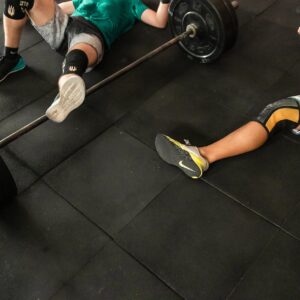Contents
- 1. Smoking Impairs Oxygen and Nutrient Delivery to Muscles
- 2. Smoking Inhibits Muscle Protein Synthesis (MPS)
- 3. Nicotine Elevates Catabolic Hormones
- 4. Smoking Disrupts Hormonal Balance
- 5. Smoking Reduces Muscle Strength and Performance
- 6. Delayed Muscle Recovery
- 7. Smoking Accelerates Sarcopenia and Muscle Loss
- Key Takeaway: Why Smokers Struggle with Muscle Development
- Conclusion
- References
Smoking is widely known to damage the heart, lungs, and immune system. However, for athletes and fitness-minded individuals, it also poses a serious threat to muscle growth and physical performance. Whether your goal is building muscle, enhancing endurance, or maintaining strength with age, smoking interferes with recovery and reduces muscular efficiency.
This article explains how smoking impacts muscle development and why quitting is a powerful step toward lasting health and performance.
1. Smoking Impairs Oxygen and Nutrient Delivery to Muscles
Mechanism:
- Cigarette smoke contains carbon monoxide (CO), which binds to hemoglobin more strongly than oxygen, reducing oxygen availability in the blood.
- Nicotine causes vasoconstriction, or narrowing of blood vessels, further limiting blood flow and nutrient delivery to working muscles.
Impact:
- Reduced oxygen limits aerobic energy production, impairing endurance and muscular stamina.
- Impaired circulation delays muscle repair and recovery, especially after resistance training.
2. Smoking Inhibits Muscle Protein Synthesis (MPS)
Muscle growth relies on protein synthesis, the process of building new muscle proteins after exercise. Smoking disrupts this vital process through:
- Inhibition of the mTOR pathway, which regulates protein synthesis in muscle cells.
- Increased production of reactive oxygen species (ROS), leading to oxidative stress and cellular damage.
A study by Montiel et al. (2020) concluded that smoking leads to reduced MPS even after resistance training, meaning smokers build less muscle than non-smokers under identical conditions.
3. Nicotine Elevates Catabolic Hormones
Nicotine stimulates the sympathetic nervous system, increasing levels of cortisol, a hormone known for its muscle-wasting (catabolic) effects.
Results:
- Increased muscle breakdown during periods of stress or exercise.
- Impaired muscle preservation during caloric restriction or aging.
4. Smoking Disrupts Hormonal Balance
Tobacco use has been associated with lower testosterone and reduced growth hormone (GH) levels—two hormones essential for muscle growth and recovery.
- Low testosterone reduces protein synthesis, libido, and recovery ability.
- Low GH hampers cellular repair and lean tissue retention.
In males especially, chronic smoking may blunt anabolic hormone responses to resistance training.
5. Smoking Reduces Muscle Strength and Performance
Numerous studies report that smokers experience:
- Lower muscle strength (especially grip and lower limb strength)
- Decreased muscle endurance
- Faster fatigue during exercise
Research from Degens and Alway (2006) found that even young adult smokers showed impaired muscle function, lower power output, and slower contractile recovery.
6. Delayed Muscle Recovery
Muscle recovery relies on:
- Inflammation resolution
- Cellular repair
- New protein formation
Smoking slows all three by:
- Reducing blood flow to muscle tissue
- Suppressing immune cell function
- Interfering with collagen and connective tissue remodeling
This results in longer DOMS (delayed onset muscle soreness) and increased injury risk.
7. Smoking Accelerates Sarcopenia and Muscle Loss
Sarcopenia is the age-related decline in muscle mass and function. Smokers are at a higher risk due to:
- Chronic inflammation
- Hormonal imbalances
- Lower physical activity levels
- Increased oxidative stress
A 2017 meta-analysis concluded that smoking accelerates muscle atrophy and impairs strength retention, especially in aging adults and sedentary individuals.
Key Takeaway: Why Smokers Struggle with Muscle Development
| Factor | Effect of Smoking |
|---|---|
| Oxygen supply | Decreased due to CO and vasoconstriction |
| Protein synthesis | Blunted via mTOR disruption |
| Testosterone/GH levels | Decreased |
| Recovery | Slower, with greater soreness and tissue damage |
| Muscle mass & strength | Reduced gains compared to non-smokers |
| Aging and sarcopenia risk | Increased |
Conclusion
Smoking sabotages your ability to build, maintain, and recover muscle. The harmful effects span from hormonal suppression and poor circulation to reduced anabolic signaling and heightened muscle breakdown. Quitting smoking not only benefits your heart and lungs but also lays a strong foundation for optimal muscle development, performance, and long-term mobility.
References
- Montiel V, et al. Smoking and muscle wasting: a narrative review. Clinical Nutrition. 2020;39(6):1661–1670. https://doi.org/10.1016/j.clnu.2019.08.022
- Degens H, Alway SE. Skeletal muscle function and hypertrophy are compromised by cigarette smoke exposure. Journal of Applied Physiology. 2006;100(1):197–203.
- Petersen AMW, Pedersen BK. The anti-inflammatory effect of exercise. Journal of Applied Physiology. 2005;98(4):1154–1162.
- Reddy LV, et al. Effect of smoking on muscle strength and fatigue in young adults. Int J Physiol. 2017;5(1):40–44.



